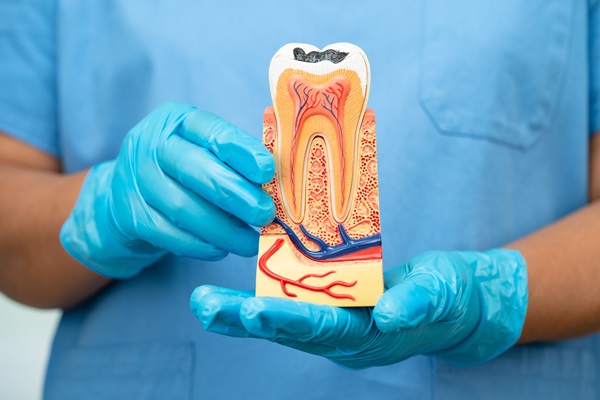4 Daily Tips for Managing Bad Breath

Bad breath, or halitosis, is a condition that no one wants to have. Despite brushing and flossing every day, bad breath happens to everyone at times. Luckily, there are several ways you can improve your halitosis. If simple methods do not work, you should schedule an appointment with your doctor to find out if it is a symptom of an underlying condition.
Bad breath control
Many causes of halitosis are preventable and easily treated. Halitosis is caused by many factors, including poor oral hygiene, a dry mouth and certain foods. People can fend off halitosis by developing good oral health habits and making changes to their diets. Here are four daily tips for managing bad breath.
Brushing
Brushing teeth properly is an effective way of fighting against bad breath. Brushing teeth twice a day will help whisk away odors. It is important to cover all the areas in the mouth. This involves brushing all surfaces of the teeth, including the inside portion of the teeth near the tongue and palate and the gumline. To eliminate bad breath, a person should brush the entire tongue surface where bacteria tend to linger after brushing the teeth and gumline. The tongue gets a great deal of bacteria buildup, which can contribute to bad breath.
Flossing
Flossing is an important component of good oral health. Flossing removes the bacteria and plaque buildup from between the teeth that toothbrushes usually cannot get rid of. This should be done at least once a day. Flossing also rids the mouth of debris and food particles. If these are left between teeth, they will rot, which smells foul.
Saliva production
One problem that can cause halitosis or make it worse is having a dry mouth. It occurs when there is not enough saliva in the mouth. Saliva lubricates and cleanses the mouth and helps flush out the bad bacteria. Dry mouth causes bad breath because food particles remain trapped in the mouth, and they eventually rot and cause an unpleasant smell when someone exhales.
Drinking plenty of water is recommended. A person should carry a water bottle and take sips frequently. It is advisable to avoid acidic beverages such as soda, orange juice and any drink that contains phosphoric or citric acid. Dry mouth and acid together is a breeding ground for dental cavities.
Chewing sugar-free gum and sucking sugarless candies can stimulate saliva production. Using sugar-free products is recommended because sugar can help feed bacteria, which will make bad breath worse once the gum is gone. Sugar in gum may also cause tooth decay. Artificial saliva prescribed by a dentist can help moisten the mouth and reduce the risk of bad breath.
Diet changes
People can benefit from choosing foods carefully. Certain foods are naturally harsh on the breath. Pungent seasonings such as vinegar and garlic can linger after meals, so these foods should be eaten sparingly. Avoiding sticky, sugary foods that linger on the teeth for a long time is also recommended.
Takeaway
You do not have to suffer from halitosis any longer. By brushing and flossing daily, maintaining adequate saliva in the mouth and choosing food carefully, you can keep your breath fresh. Regularly visiting your general dentistry is also recommended. These tips will assist you in managing and eliminating your experience with halitosis.
Request an appointment here: https://beautifulmouth.com or call Beautiful Smile, LLC at (856) 346-8900 for an appointment in our Gibbsboro office.
Check out what others are saying about our dental services on Yelp: Bad Breath in Gibbsboro, NJ.
Recent Posts
Dentists recommend root canal treatment for damaged, diseased, or infected teeth. The treatment aims to eliminate bacteria within the tooth's pulp and save a patient's natural teeth. After a tooth matures, it no longer requires the pulp for nourishment. The dentist removes the infected pulp, disinfects the inside, and seals it to prevent reinfection.Decay and…
Dental implants are the best way to fill in the gaps from missing teeth. Missing teeth cause a number of oral health issues, including making it harder to chew and altering the structure of the other teeth. However, dental implants are not suitable for all patients. You must have healthy teeth and gums, good oral…
Patients considering dental crowns may have concerns regarding the recovery period following the procedure. Fortunately, the typical recovery period is relatively quick and involves minor inconvenience. Most risks and complications resulting from the procedure are comparable to those of most dental procedures and therefore require similar precautions.The placement of dental crowns involves two stages, each…
Any family dentist will tell you that regular dental visits are important. Some people think that good oral care means only brushing the teeth twice every day and flossing once each day. While these are important practices, you should also schedule dental appointments for professional teeth cleaning and checkups. These visits are vital for the…


